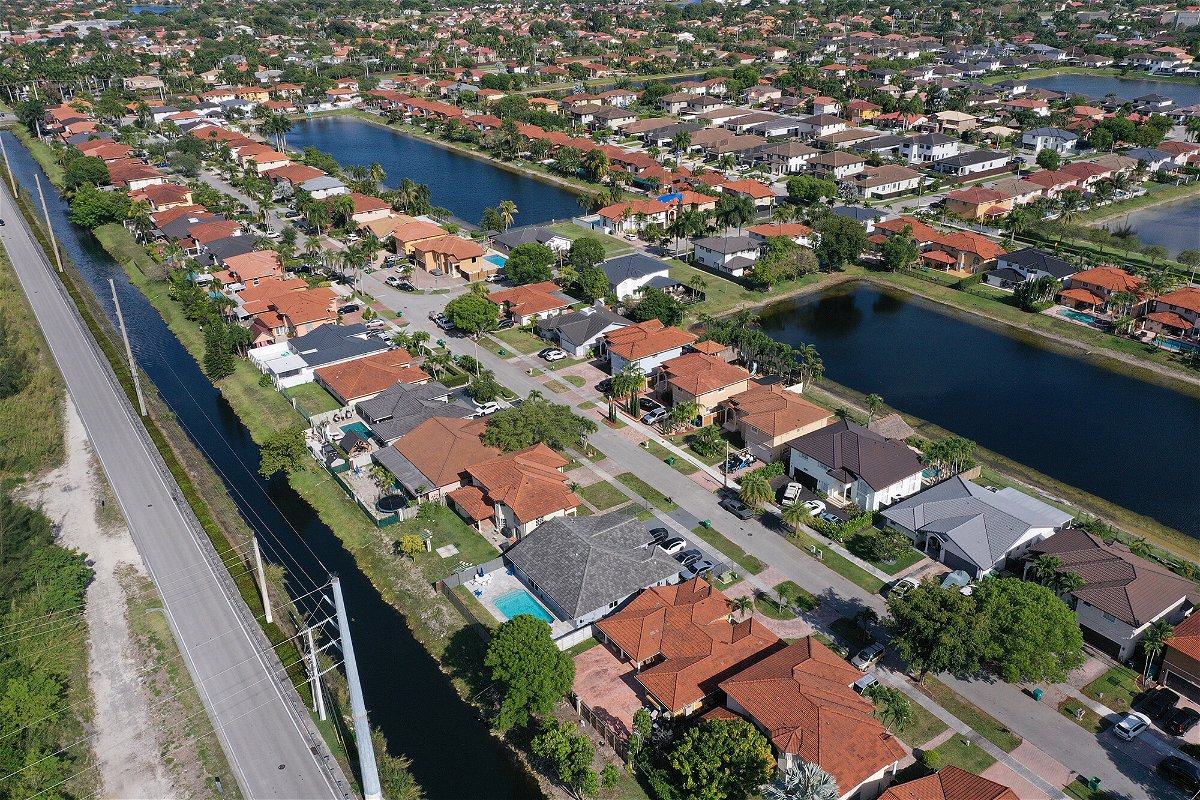Mortgage rates fall slightly, but offer little relief to buyers

Mortgage rates fell for a second consecutive week
By Anna Bahney, CNN Business
Mortgage rates fell for a second consecutive week, but still remain above 5%.
The 30-year, fixed-rate mortgage averaged 5.10% in the week ending May 26, down from 5.25% the week before, according to Freddie Mac. It is still well above the 2.95% average from this time last year.
“Mortgage rates decreased for the second week in a row due to multiple headwinds that the economy is facing,” said Sam Khater, Freddie Mac’s chief economist. “Despite the recent moderation in rates, the housing market has clearly slowed, and the deceleration is spreading to other segments of the economy, such as consumer spending on durable goods.”
Buyers are finding homes even less affordable as inflation takes a larger chunk of their income and the cost of borrowing has reduced their purchasing power. Rates have risen sharply since January, pushing the cost of financing a home significantly higher for buyers.
At the end of May 2021, a buyer who put 20% down on a $375,500 home — a price just under the median price for an existing home — and financed the rest with a 30-year, fixed-rate mortgage at an average interest rate of 2.95% had a monthly mortgage payment of principal and interest of $1,258, according to numbers from Freddie Mac.
Today, a homeowner buying the same price house with an average rate of 5.10% would pay $1,631 a month in principal and interest. That is $373 more each month and $134,140 more in cumulative interest payments over the life of the loan, according to numbers from Freddie Mac.
For many people, that several hundred dollars in additional payment a month is the difference between deciding whether to buy a home and build equity or continuing to rent.
Analysts expect mortgage rates will remain at these levels or move higher, as long as the Federal Reserve is still working to stem inflation. Federal Reserve Chairman Jerome Powell has said the central bank will continue to raise interest rates until the goal of healthier prices is met.
Mortgage rates tend to track 10-year US Treasury bonds, but they are also indirectly impacted by the Fed’s actions on inflation.
“Investors taking part in the stock market sell-off of the past five weeks have shifted their attention to the debt market, driving up prices on T-bills and mortgage-backed securities,” said Joel Berner, Realtor.com’s senior economic research analyst. “This allowed mortgage rates to fall, even amid inflation-cooling policies initiated by the Federal Reserve.”
Buyers are getting squeezed out
As mortgage rates have moved higher and the cost of buying a home increases, more buyers are expected to drop out of the market. That, in turn, is likely to reduce competition in some markets, slowing the pace of home price growth.
“Mortgage rates leveling off is a lifeline for prospective homebuyers already dealing with inflation and record-high listing prices, and welcome news for the housing market at large,” said Berner.
The spike in mortgage rates over the last four months has led to a monthslong slide in new home sales and existing home sales.
“The current slowdown in the market, while increasing the number of homes for sale, may actually exacerbate the existing overall housing shortage in the long term if the news causes builders to pull back,” Berner said.
As the cost of buying and financing a home remains high, current homeowners may opt to stay put and hold on to their lower mortgage rate.
Homebuilder sentiment, as measured this month by the National Association of Home Builders’ Housing Market Index, is down 10.4% from May of last year and at its lowest level since the early days of the pandemic. New home sales fell by nearly 17% in April from the month prior as buying became even less affordable.
Pending home sales also slipped in April, as contract activity decreased for the sixth consecutive month to the slowest pace in nearly a decade, according to the National Association of Realtors. The forward-looking indicator, which tracks contracts signed but not closed, dropped 3.9% in April from March and is down 9.1% from a year ago.
“Pending contracts are telling, as they better reflect the timelier impact from higher mortgage rates than do closings,” said Lawrence Yun, NAR’s chief economist.
The higher cost of borrowing is already a burden, he said, but it becomes even more problematic for families on a budget and already contending with rapid inflation, including surging fuel and food costs.
“Dark and stormy is the current mood, but a period of steadier rates below recent highs will give buyers, sellers, and builders alike the time to adjust to the new financial environment,” said Berner.
The-CNN-Wire
™ & © 2022 Cable News Network, Inc., a WarnerMedia Company. All rights reserved.



